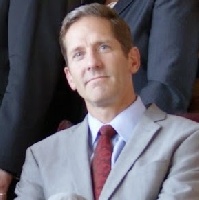Bonney Lake White Collar Crime Lawyer, Washington
Sponsored Law Firm
-
 x
x

Click For More Info:
-
Durflinger Oliver & Associates
711 St Helens Ave Ste 209 Tacoma, WA 98402» view mapCriminal Defense Demand Justice, Demand Durflinger Oliver
If you have been charged with a crime or received a traffic ticket, the choice you make in an attorney will have long lasting consequences. Call today.
800-938-8951
Michael E Harbeson
Divorce & Family Law, White Collar Crime, Criminal
Status: In Good Standing Licensed: 28 Years
Dennis James Twichel
Traffic, White Collar Crime, Misdemeanor, DUI-DWI, Criminal
Status: In Good Standing Licensed: 33 Years
Susan E Anderson
Criminal, Car Accident, Science, Technology & Internet, White Collar Crime
Status: In Good Standing Licensed: 41 Years
Susan E Anderson
Criminal, Car Accident, Science, Technology & Internet, White Collar Crime
Status: In Good Standing Licensed: 41 Years
David Richard Kirshenbaum
Lawsuit & Dispute, White Collar Crime, DUI-DWI, Criminal
Status: In Good Standing
Derek Matthew Smith
White Collar Crime, DUI-DWI, Private Judging, Criminal
Status: In Good Standing Licensed: 28 Years
 James Oliver Tacoma, WA
James Oliver Tacoma, WA AboutDurflinger Oliver & Associates
AboutDurflinger Oliver & Associates Practice AreasSpecializations
Practice AreasSpecializations
